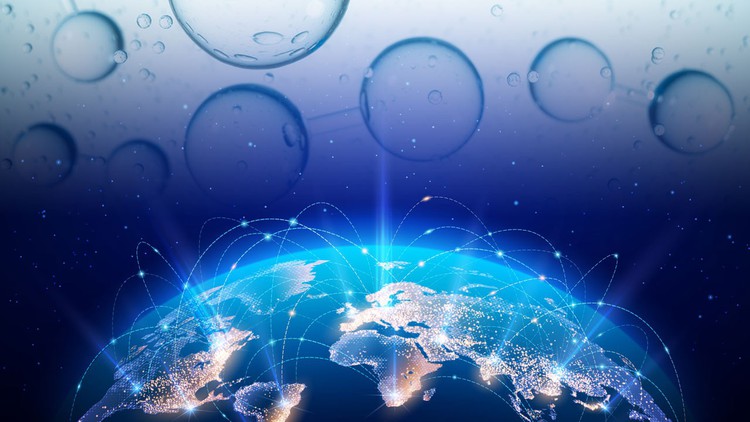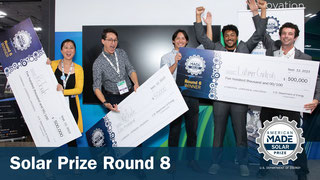Today there are limited regions in the world where hydrogen and fuel cell technologies are being deployed at scale. As clusters of hydrogen production and end use applications at scale start to develop worldwide, sharing best practices and lessons learned can help accelerate progress and adoption. The H2 Twin Cities initiative aims to enable this acceleration by establishing international partnerships and creating an online platform to share lessons learned and best practices, showcase partner cities, and increase awareness of hydrogen and fuel cell technologies worldwide. Priorities include energy and environmental justice, social equity, and the intent to enable concrete impact through fostering market adoption, scaling up hydrogen technologies, providing training and outreach resources, and achieving emissions reductions, particularly at the city and municipality level.
View the Official Application Guidelines
The H2 Twin Cities initiative welcomes both communities who are already front-runners in hydrogen and fuel cell technology deployments, and those who are interested but have lacked the resources and experience to realize these deployments thus far. There are two categories under the H2 Twin Cities initiative under which entrants can apply.
Category 1: Sibling Cities
Sibling cities are pairings of cities from different countries, with strong preference for cities on different continents, that are already at the forefront of deploying hydrogen and fuel cell technologies and have extensive experience and success in end use acceptance, building infrastructure, and community awareness. These cities would share and develop best practices and lessons learned to showcase to each other, as well as to other regions through the H2 Twin Cities platform, to further accelerate progress. While the focus is initially on sharing best practices to further advance hydrogen in their own regions to enable scale, cost reductions, and user acceptance, it is also expected that these sibling cities would subsequently adopt a "mentee" city to transmit their learnings and achieve further impact and value to global partners. In this regard, if entrants apply to this category, by year 2, these cities would be required to identify a mentee city to provide guidance to. This third city would be added to the initial sibling pair.
Category 2: Mentor-Mentee Cities
Mentor-Mentee Cities are pairings of cities from different countries, with strong preference for cities on different continents, that are at significantly different levels of hydrogen implementation. One city would be considered the Mentor city and would share lessons learned and best practices with the Mentee city, which is committed to future deployment of hydrogen technologies and addressing challenges of adoption. Both Mentor and Mentee cities would self-assemble and submit a joint application. This "twinning" of Mentor and Mentee cities would allow for an immediate benefit to the Mentee city. However, because it is not necessarily the case that the Mentee city's country would be able to support the initiative with funding, entrants may also consider the Category 1 route.
In both categories, the inclusion of disadvantaged communities, diversity, equity, and engagement across a broad group of stakeholders will be considered highly favorable in the selection/scoring process.
Eligibility
Any city in any country that has a demonstrated commitment to advancing hydrogen and fuel cell technology is eligible to apply. For example, the country may have a hydrogen roadmap, policies to advance hydrogen, and/or resources to support the advancement of hydrogen technologies. Participation by Clean Energy Ministerial (CEM) member countries is encouraged and funding has been committed by CEM members for cities within their countries.
Phase 1 (optional): Self Identification, November 10, 2021 through January 17, 2022
Applicants may self-identify on the H2 Twin Cities application website at any time prior to the Phase 1 application deadline. This step is optional but if cities are not already aware of potential partners, it provides an opportunity for visibility and signaling interest in serving as a potential H2 Twin City. Posting interest on the website is not required and cities may self-assemble prior to submitting the application.
Phase 2: Application Submission, January 20, 2022 through March 18, 2022
One application must be submitted by both parties (jointly) who have agreed to the terms and intent of the H2 Twin Cities initiative. Interested cities may self-identify on the H2 Twin Cities website during Phase 1 but any partnering is left entirely to the entities involved and will not be determined by the country or CEM representatives. A single city submitting an application cannot be judged without a partner city.
Please review the official guidelines document for the complete application process and instructions for competing.
Also see the Phase 2 scoring criteria document for more information about the scoring criteria, examples of suggested content to meet each criterion, and example metrics aligned with suggested content.







